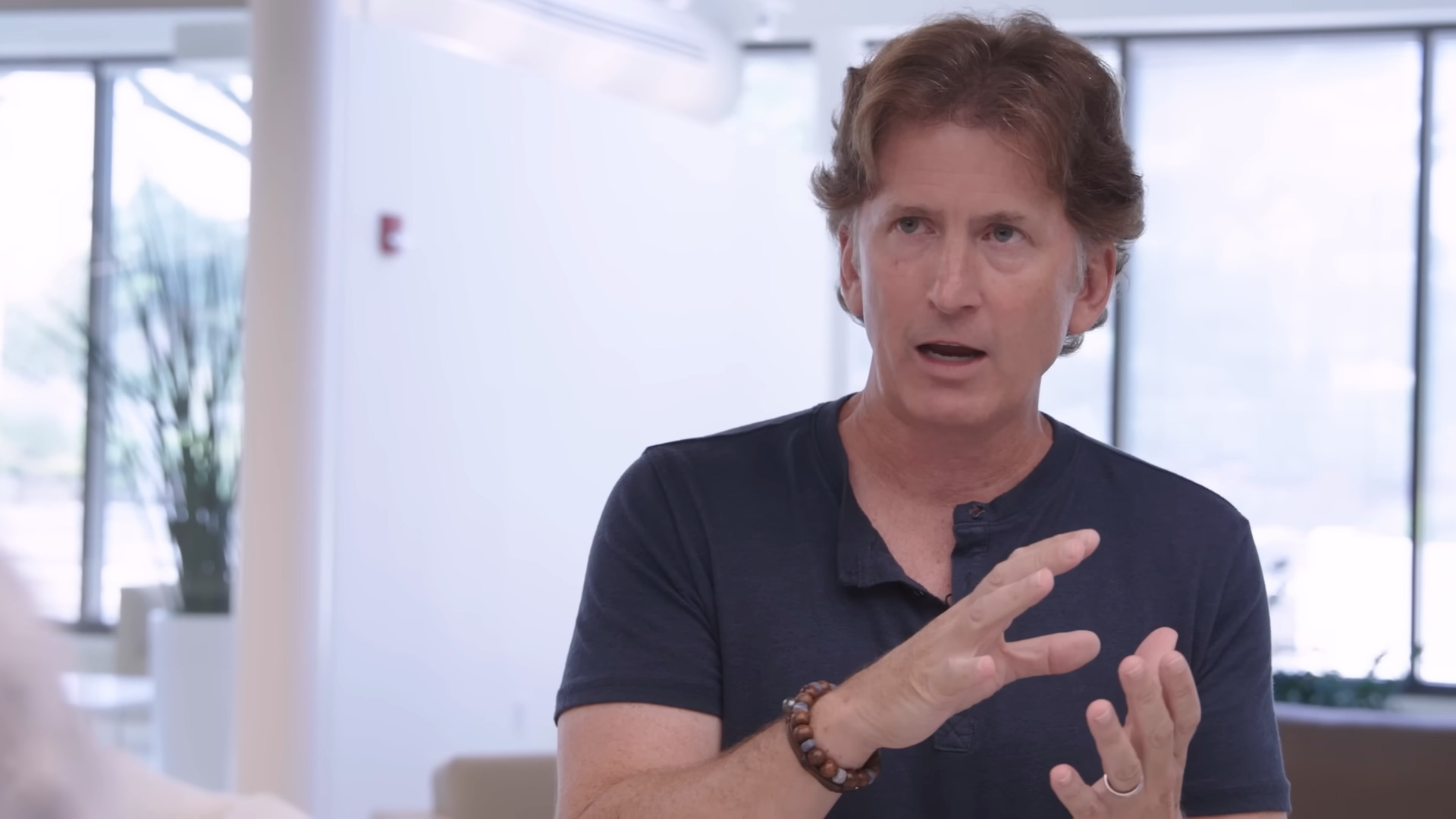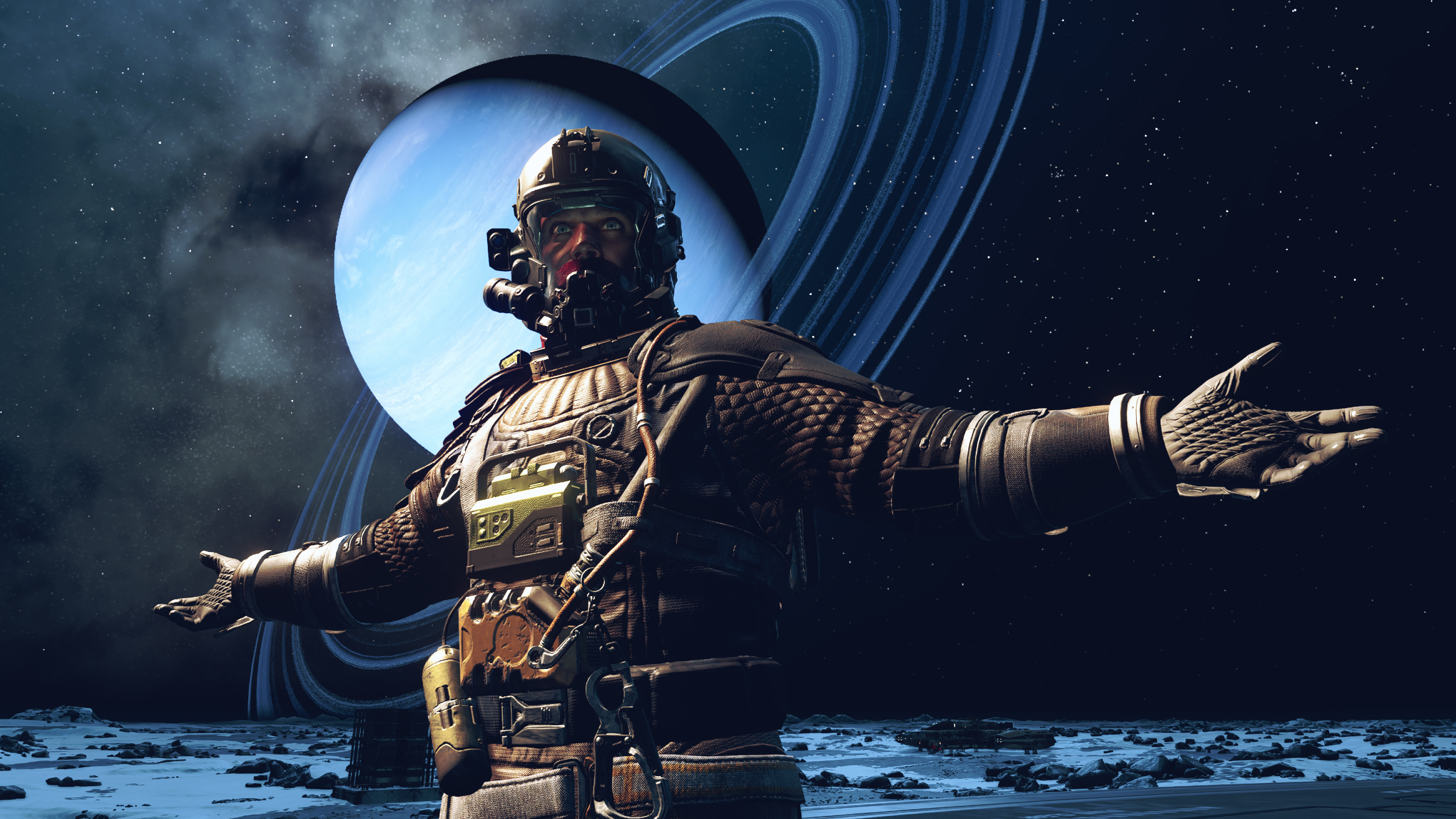Todd Howard reflects on Starfield's development, says there were times he thought 'we had certainly bitten off far more than we could chew'
You may think it's a long way down the road to the chemist's, but that's just peanuts to space.

Going from 'here is an RPG set in Boston and Massachusetts' to 'here is an RPG set in space' is a mind boggling task. Todd Howard, captain of the SS Starfield, definitely felt the weight of his mission during development, as revealed in a letter he sent to reviewers before the game's launch.

Starfield guide: Our hub of advice
Starfield console commands: Every cheat you need
Starfield mods: Space is your sandbox
Starfield traits: The full list, with our top picks
Starfield companions: All your recruitable crew
Starfield romance options: Space dating
"By 2020, we had the team at its full production size of 275, just as the world turned upside down with the pandemic. We had to work in all new ways … there were many days when we thought the game may never exist, that we had certainly bitten off far more than we could chew. Development is never a straight road, it's often a winding and treacherous path."
You can read the full thing courtesy of The Verge's Tom Warren on Twitter/X—in the letter, Howard goes on to talk about his pride in the development team, and his hope for the journey that the game's reviewers—and by extension, its players—were about to take.
I'm yet to properly sink my teeth into the game as much as PC Gamer's Christopher Livingston, who wrote our Starfield review. Considering the scope he's laid out however, I'm not surprised that the gravity of Bethesda's 1,000 planet-strong ambition weighed on its development team.
Compromises were definitely made to handle the game's bulky scope. There was plenty of hubbub in the community about the lack of atmospheric flight, and PC Gamer's Morgan Park wrote about the sting of disappointment he felt when he bumped up against the surface's planetary boundaries.
In fairness, I don't think we needed another Daggerfall-style experience. The 1996 entry in Bethesda's Elder Scrolls catalogue had a map 3/4ths the size of Great Britain. You could run across it on foot, it took around 70 hours, and there was absolutely no value in doing so. Technology's come a long way since 1996, obvious, but the problem stays the same.
So why not keep the experience contained in a way that's controllable for the devs? You'd only be giving fodder for sickos for something to weigh down their W key with and some timelapse software. Yet compromises like this did hamper Livingston's experience of wonderment somewhat despite the fact that his score of the game—75—is generally positive.
Keep up to date with the most important stories and the best deals, as picked by the PC Gamer team.
"Space travel, docking, boarding, and getting onto and off your ship is a series of cutscenes, black screens, and loading screens … Even though that's more or less what I was expecting, it still feels underwhelming."
That's not to say he hasn't gone on big, emergent adventures of his own, though, so there are plenty of ways in which Starfield feels big—it's just in terms of personal goals, roleplay opportunities, and winding rabbit holes. If the game's provided enough of a sandbox to make your own fun, that's an achievement to be proud of.
"I've begun my own freeform crime operation. As a part of my work as a mule I learned the formula to synthesize a popular drug, so I'm now in the midst of building an offworld drug manufacturing base, scouring the galaxy for moons and planets that will let me extract the particular chemicals I need. It's the first step in my personal mission to become the Walter White of space meth. There's no quest marker for that, it's just something I want to do."
I'm still fiddling around with cursed decals in Armored Core 6, but once I get a moment to plant my space boots on the moon, I'm curious to see whether I'll feel the same 'ocean wide, inch deep' ennui described above. Considering the nightmare of developing a titanic RPG like Starfield, though, I'm more than willing to give it a fair shake.

Harvey's history with games started when he first begged his parents for a World of Warcraft subscription aged 12, though he's since been cursed with Final Fantasy 14-brain and a huge crush on G'raha Tia. He made his start as a freelancer, writing for websites like Techradar, The Escapist, Dicebreaker, The Gamer, Into the Spine—and of course, PC Gamer. He'll sink his teeth into anything that looks interesting, though he has a soft spot for RPGs, soulslikes, roguelikes, deckbuilders, MMOs, and weird indie titles. He also plays a shelf load of TTRPGs in his offline time. Don't ask him what his favourite system is, he has too many.

